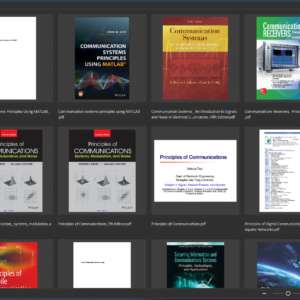
Effective Review Strategies For Engineering Exams
Comprehensive Study Strategies for Aspiring Engineers: From Textbooks to Online Courses
Table of Contents
Preparing for the Professional Licensure Examination as an aspiring engineer requires a strategic approach to studying, utilizing a diverse array of resources to maximize success. From classic textbooks that provide foundational knowledge to dynamic online courses that offer flexibility and current insights, there’s a wealth of engineering review materials available to cater to various learning styles. Practice exams and study groups further enhance preparation by simulating test conditions and fostering collaborative learning. In this guide, we’ll delve into effective study strategies, offering test preparation tips to help you select and harness these resources efficiently. Whether you’re specializing in civil, mechanical, or electrical engineering, mastering the art of studying is key to achieving licensure exam success and advancing your engineering career.

Essential Review Materials for Engineers
Textbooks: The Foundation
Textbooks are the cornerstone of engineering review materials. They provide a comprehensive overview of essential concepts that form the bedrock of engineering knowledge. For aspiring engineers preparing for the Professional Licensure Examination, textbooks are invaluable for their detailed explanations and structured format. They cover a wide range of topics, offering in-depth analysis and numerous examples. This allows you to build a solid understanding of fundamental principles. However, it’s crucial to select the right textbooks that align with your specific engineering discipline, be it civil, mechanical, or electrical engineering. Make sure to choose books authored by reputable experts in the field. Consistent reading and review of textbook materials should be part of your daily study routine. This practice will reinforce your learning and improve retention, ultimately contributing to your licensure exam success. Remember, mastering textbook content is a significant step in your study strategy.

Online Courses for Engineers
Online courses have become an essential component of engineering review materials, offering flexibility and access to updated information. They allow aspiring engineers to tailor their study schedules around other commitments, providing a convenient solution for professional licensure exam preparation. The interactive nature of online courses often includes video lectures, quizzes, and forums, which can enhance understanding and engagement. Selecting the right online course is crucial. Look for courses that are renowned for their comprehensive coverage of exam-relevant content and are taught by experienced educators. These courses often use a modular structure, enabling you to focus on specific areas where you might need additional practice. Additionally, many online platforms offer practice exams and personalized feedback, helping you track your progress and adjust your study strategies accordingly. Incorporating online courses into your study routine can provide a well-rounded preparation experience, bridging any gaps left by traditional textbooks.

Practice Exams: Test Your Knowledge
Practice exams are a vital part of preparing for the Professional Licensure Examination. They serve as a practical application of the knowledge gained from engineering review materials, such as textbooks and online courses. Taking practice exams regularly allows you to familiarize yourself with the exam format and types of questions you might encounter. This familiarization helps reduce anxiety and improves time management skills during the actual exam. Practice exams also highlight areas where further study is needed, enabling you to focus your efforts more effectively. When selecting practice exams, ensure they are up-to-date and accurately reflect the content and difficulty of the licensure exam. Many resources offer explanations for each answer, which can deepen your understanding and correct misconceptions. By integrating practice exams into your study strategies, you can build confidence and increase your chances of achieving licensure exam success. Regular practice is key to mastering the material and excelling on test day.
Effective Study Strategies
Time Management Techniques
Efficient time management is crucial when preparing for the Professional Licensure Examination. With a structured approach, you can maximize your productivity and ensure comprehensive coverage of all necessary materials. Start by creating a detailed study schedule that breaks down your study goals into manageable daily tasks. Prioritize topics based on their complexity and your familiarity with them, dedicating more time to challenging areas. The Pomodoro Technique, which involves focused study sessions followed by short breaks, can enhance concentration and prevent burnout. Additionally, allocate time for regular review to reinforce learning and improve retention. Using digital tools like calendars and task management apps can help track progress and stay organized. It’s also important to set aside time for relaxation and leisure to maintain mental well-being. Balancing study with rest ensures sustained motivation and energy levels. By mastering time management techniques, you can effectively prepare for your engineering licensure exam, leading to greater success.

Utilizing Study Groups
Study groups for engineering exam preparation can be a powerful tool in your study strategy arsenal. Collaborating with peers allows you to gain diverse perspectives and insights, enhancing your understanding of complex topics. In a study group, you can discuss challenging concepts, solve problems collectively, and share resources, which can lead to a more comprehensive grasp of the material. To maximize the benefits, ensure your study group is composed of committed and like-minded individuals with similar goals. Regularly scheduled meetings and a structured agenda can help maintain focus and productivity. Assign different topics to each member for discussion to encourage active participation and accountability. Additionally, explaining concepts to others in the group can reinforce your own knowledge and reveal any gaps in understanding. Study groups also provide emotional support, helping to keep motivation high and reduce stress. By leveraging the power of collaboration, study groups can significantly contribute to achieving licensure exam success.

Maintaining Motivation
Staying motivated throughout the preparation for the Professional Licensure Examination can be challenging. To maintain motivation, set clear, achievable goals and celebrate small victories along the way. Breaking down your study plan into smaller milestones can make the process feel less overwhelming and more manageable. Regularly reviewing your progress can provide a sense of accomplishment and encourage continued effort. It’s also important to connect with your long-term career aspirations, reminding yourself how success in the licensure exam contributes to your goals as an engineer. Incorporate a variety of study methods to keep sessions engaging and avoid monotony. Additionally, ensure you have a support system in place, whether it’s through study groups or family and friends, to provide encouragement and accountability. Taking breaks and caring for your physical and mental health will also help keep your motivation levels high. By nurturing your motivation, you’ll be better positioned to achieve exam success and advance in your engineering career.

Types of Engineering Licensure Exams
Civil Engineering Examinations
Civil engineering exams are a critical step for professionals seeking licensure. These exams assess your competence in designing, constructing, and maintaining infrastructure projects, such as roads, bridges, and water systems. The Professional Engineer (PE) exam for civil engineers typically covers a broad range of topics including structural, geotechnical, transportation, and environmental engineering. To prepare effectively, familiarize yourself with the exam format and identify the specific areas emphasized in your region or by your board. Engineering review materials tailored to civil engineering are essential, providing targeted practice on relevant subjects. Incorporating practice exams into your routine helps simulate test conditions and improve time management skills. Joining study groups can also be beneficial, allowing you to discuss complex problems and share insights with peers. Staying updated with industry standards and regulations is crucial, as these often feature in exam questions. Thorough preparation ensures you are well-equipped to achieve licensure exam success in civil engineering.

Mechanical Engineering Examinations
Mechanical engineering exams are designed to evaluate your proficiency in applying principles of mechanics and energy. These exams are essential for obtaining licensure as a Professional Engineer (PE). They cover a range of topics, including thermodynamics, fluid mechanics, and materials science. To prepare, it’s important to use engineering review materials that focus specifically on mechanical engineering concepts. Practice exams play a crucial role in understanding the exam structure and managing your time effectively during the test. Additionally, engaging with study groups can provide diverse problem-solving approaches and clarify complex concepts. Make sure to review the latest standards and technological advancements in mechanical engineering, as these can be relevant to the exam. Staying disciplined with a consistent study schedule will help reinforce your understanding and memory retention. Successfully passing the mechanical engineering exams not only marks a milestone in your career but also opens up new opportunities for professional growth and innovation.

Electrical Engineering Exams
Electrical engineering exams are pivotal for aspiring engineers aiming to achieve licensure and demonstrate their expertise in the field. These exams typically test your understanding of electrical circuits, control systems, and signal processing. To excel, it’s important to utilize engineering review materials tailored for electrical engineering, focusing on both fundamental principles and advanced topics. Practice exams are particularly useful for familiarizing yourself with the question format and refining your problem-solving speed. Joining study groups can provide collaborative learning opportunities, allowing you to gain insights from peers who might have expertise in different sub-disciplines. Stay informed about the latest technologies and industry practices, as these may be relevant in the exam context. Developing a structured study plan that allocates time for each topic will help in covering the breadth of the material. Achieving success in electrical engineering exams not only validates your skills but also enhances your career prospects in a rapidly evolving industry.

Tips for Test Preparation
Creating a Study Schedule
Creating a study schedule is a fundamental step in preparing for the Professional Licensure Examination. A well-structured schedule helps organize your study time and ensures comprehensive coverage of all topics. Begin by assessing the total amount of time available before the exam and identifying the subjects you need to cover. Break down your study material into manageable sections and allocate specific time slots for each topic. Prioritize areas where you feel less confident, dedicating more time to these subjects. Incorporate regular review sessions to reinforce learning and improve retention. It’s also crucial to include breaks to prevent burnout and maintain focus. Using digital tools like planners or scheduling apps can aid in keeping track of your progress. Be flexible and adjust your schedule as needed, but strive to adhere to it as closely as possible. By following a consistent study schedule, you can reduce stress and enhance your preparedness for the licensure exam.

Active Learning Techniques
Active learning techniques are crucial for effective test preparation, especially for the Professional Licensure Examination. These methods promote deeper engagement with the material, enhancing understanding and retention. Techniques such as self-questioning, summarizing, and teaching the material to someone else can significantly improve comprehension. Practice problems and case studies are also valuable, as they allow you to apply theoretical knowledge to practical scenarios. Another effective approach is concept mapping, which helps visualize relationships between different topics. Flashcards can be useful for memorizing key formulas and definitions, while group discussions can provide new perspectives and clarify doubts. Incorporate these active learning methods into your study routine to complement passive review techniques like reading. This balanced approach ensures a comprehensive grasp of the subject matter. Active learning not only prepares you for the types of questions you’ll encounter on the exam but also builds skills that will be invaluable in your engineering career.

Stress Management Strategies
Stress management is an essential aspect of preparing for the Professional Licensure Examination. High stress levels can negatively impact concentration and overall performance. To manage stress effectively, incorporate relaxation techniques into your daily routine. Practices such as deep breathing, meditation, and yoga can help calm the mind and reduce anxiety. Regular physical activity is also beneficial, as it releases endorphins that improve mood and decrease stress. Ensure you maintain a balanced lifestyle, including adequate sleep and a healthy diet, to support both physical and mental well-being. Time management plays a crucial role in stress reduction; a well-structured study schedule can prevent last-minute cramming and alleviate pressure. Additionally, take breaks during study sessions to recharge and maintain focus. Engage in hobbies or activities you enjoy to provide a mental escape from exam preparation. By implementing these stress management strategies, you can create a more positive and productive study environment, enhancing your chances of exam success.

Leveraging Online Resources
Finding Quality Courses
Finding quality online courses is crucial for effective preparation for the Professional Licensure Examination. With a plethora of options available, it’s important to choose courses that provide comprehensive coverage and are tailored to the specific requirements of your engineering discipline. Start by researching courses from reputable platforms known for their academic rigor and quality. Look for courses developed by industry experts or accredited institutions, as these are likely to be well-structured and up-to-date with current standards and technologies. Read reviews and testimonials from past participants to gauge the course’s effectiveness and relevance. Consider courses that offer interactive elements like quizzes, forums, and live sessions, which can enhance your learning experience. Additionally, ensure the course fits your schedule and learning style, providing flexibility without compromising on content quality. Selecting the right online courses can greatly enhance your study strategy, providing valuable insights and preparation for achieving licensure exam success.

Interactive Learning Platforms
Interactive learning platforms offer a dynamic and engaging approach to preparing for the Professional Licensure Examination. These platforms combine various multimedia elements such as videos, quizzes, and interactive simulations to cater to different learning styles. Utilizing interactive platforms can enhance your understanding of complex engineering concepts by providing hands-on experiences and real-time feedback. Many platforms also offer forums and discussion groups where you can collaborate with peers and seek advice from instructors, fostering a collaborative learning environment. Platforms like Coursera, Udacity, and Khan Academy are well-known for their quality content and interactive features. When selecting a platform, ensure it offers courses relevant to your specific engineering discipline and exam requirements. The flexibility of these platforms allows you to study at your own pace, making it easier to balance preparation with other commitments. By incorporating interactive learning platforms into your study routine, you can make learning more engaging and effective, ultimately leading to exam success.
Engaging with Online Communities
Engaging with online communities can significantly enhance your preparation for the Professional Licensure Examination. These communities offer a platform for aspiring engineers to share insights, ask questions, and exchange study resources. Participating in forums and discussion groups can provide diverse perspectives on challenging topics, helping to deepen your understanding. Websites like Reddit, Stack Exchange, and LinkedIn groups are valuable resources where you can connect with peers and experienced professionals. Engaging with these communities allows you to stay updated on exam trends and gather tips from successful candidates. Additionally, discussing complex problems and solutions with others can improve your problem-solving skills and boost your confidence. Active participation in online communities also offers emotional support, reducing the isolation often felt during exam preparation. By leveraging the collective knowledge and experience of these communities, you can enhance your study strategy and improve your chances of success on the licensure examinations.

Electronics Engineering Examinations
Electronics engineering exams are pivotal for professionals aiming to validate their expertise in designing and analyzing electronic systems. These exams often cover a wide range of topics, including digital circuits, microprocessors, and communication systems. To prepare effectively, it is crucial to use engineering review materials specifically tailored to electronics engineering, focusing on both theoretical knowledge and practical applications. Regularly taking practice exams can help you become familiar with the exam format and timing, reducing anxiety and improving performance. Engaging with study groups can provide diverse insights and problem-solving strategies, which are invaluable in understanding complex concepts. Keeping abreast of the latest developments and technologies in electronics engineering is also essential, as these can often appear in exam questions. By committing to a disciplined and comprehensive study plan, you can enhance your chances of success in electronics engineering licensure exams, paving the way for a rewarding career in this innovative field.







Add Comment